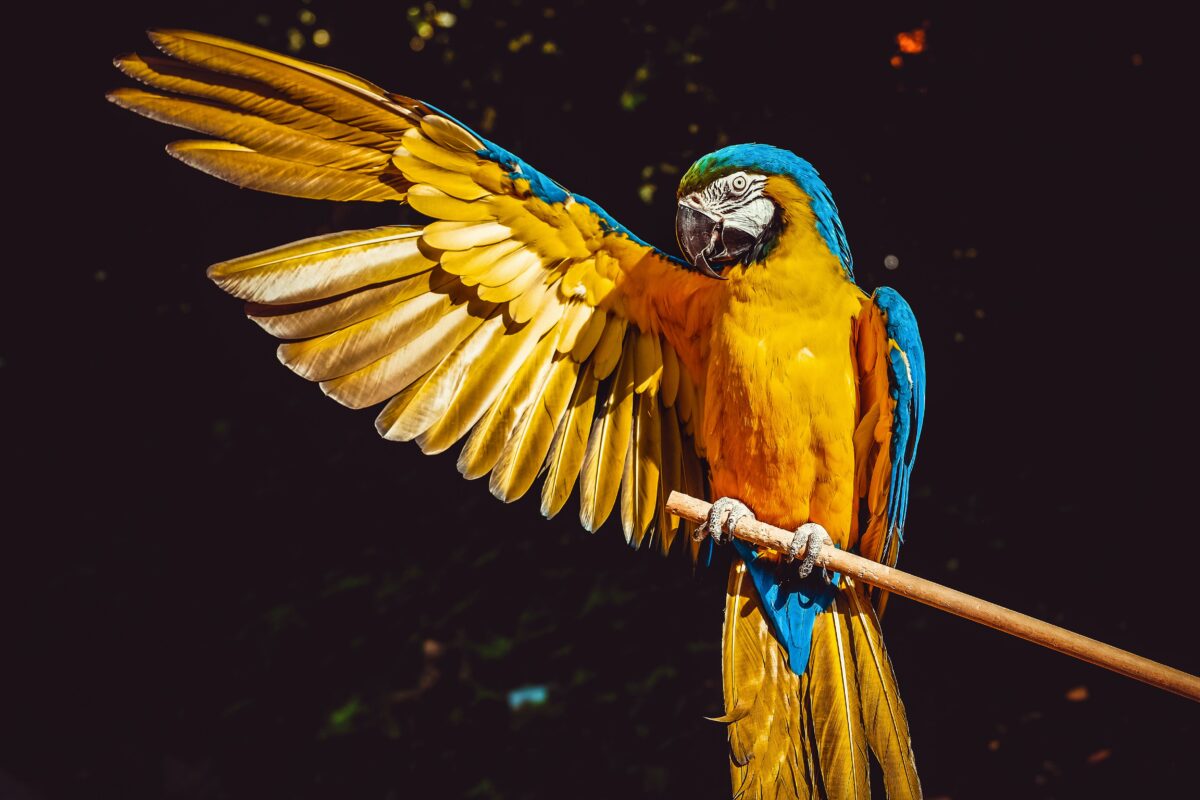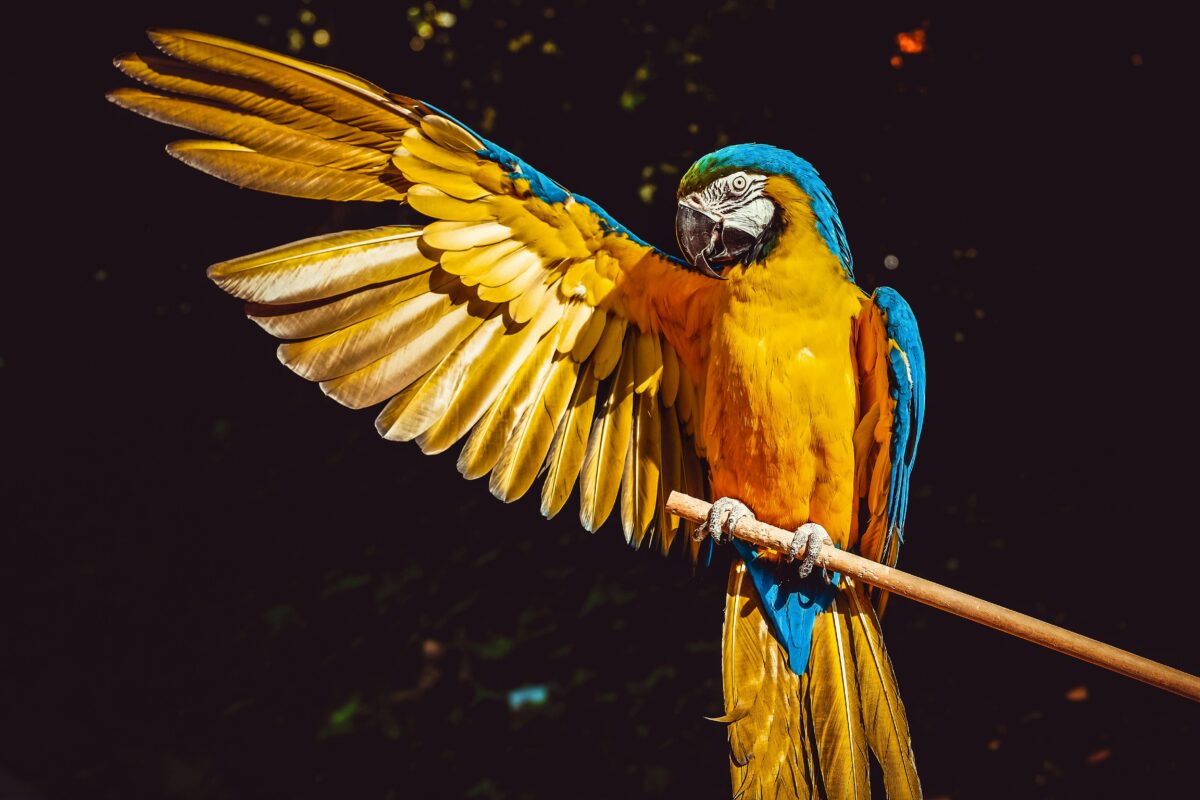Imagine you are going on an exciting journey through the big, wild world of animals. You’re not just watching them, though, you’ll be learning about them, too! This article will show you all the amazing things animals can teach us. It’s written by people who see things just as they are, and they’ve got lots of interesting thoughts to share. So lace up your adventure boots and get ready to learn in the most fun way—the realist way! You’re going to explore the educational side of the animal kingdom! Let’s get started!
Understanding the Animal Kingdom
Concept of Animal Kingdom
Imagine if we put all living creatures in one large group. That’s what we call the Animal Kingdom. Just like your toys are sorted into different boxes based on their type, we group animals too. This helps scientists see patterns and links between animals, understand where they live, and how they survive.
Different categories within the Animal Kingdom
The Animal Kingdom has different parts. These different parts are called categories. Think about your toy animals. You have toy dogs, birds, reptiles etc. In the same way, we have mammals, birds, reptiles and so on in the Animal Kingdom. There are even animals that live in water, like fish and other smaller creatures called invertebrates.
Significance of studying Animal Kingdom in education
Why should you learn about the Animal Kingdom? Well, studying animals helps you understand nature better. You get to learn about different types of creatures, where they live, how they eat, and how they live together. This knowledge is not only fun, but it also helps you respect nature more.
Integrating Animal Kingdom Education in Curriculum
The essence of exposure to biology at a young age
Learning about animals in school is not just fun but also very important. When you start learning about animals at an early age, you begin to understand how life works. You start appreciating the beauty of nature. Plus, who knows? You might even grow up to be a scientist one day!
Curriculum design considerations
When your teachers plan lessons about animals, they have to consider many things. They have to think about what is best for you to learn at your age, what learning materials they can use, and how they can make lessons fun and interesting for you. It can be a bit challenging, but it’s a fun job.
Practical approaches introducing Animal Kingdom in classrooms
In class, you might play games about animals, watch movies or read books, or even bring a pet to class for everyone to see. All these ways make learning about animals fun and easy. Plus, you don’t just hear about animals from the teacher; you get to see, touch, and maybe even hear them too!

This image is property of images.pexels.com.
Educational Benefits of Learning about the Animal Kingdom
Developing a sense of wonder, curiosity and respect for nature
When you learn about animals, you start to ask questions. Why does a kangaroo have a pouch? How can birds fly? Why are some animals so small while others are big? This sense of wonder and curiosity helps you learn more and respect nature more.
Boosting Cognitive Development
Learning about animals is also good for your brain. It helps you think in new ways and understand new ideas. Plus, learning new words like names of animals, their body parts and what they eat can be fun too!
Improving emotional intelligence with animal stories
Have you read or listened to any animal stories? They can teach you about feelings, friends, helping others and caring for the planet. This helps you understand your emotions and others’ feelings better.
Encouraging interest in scientific fields
Maybe most importantly, learning about animals can make you interested in studying science. You may become a biologist, veterinarian, or a researcher who helps protect our planet. But no matter what, the knowledge you gain will be valuable for life.
Exploring the Mammals Category
Introduction to mammals
Mammals are warm-blooded animals with fur or hair, and they give live birth to their young. Humans are mammals too!
How understanding mammals contribute to education
Learning about mammals, like how they feed their young with milk and have teeth, helps you understand how humans are also a part of the Animal Kingdom. Isn’t that exciting?
Teaching approach for mammals
Teachers can introduce different types of mammals, their habitats, and eating habits through various ways like play-based activities, storytelling, and even inviting a pet in the classroom.

This image is property of images.pexels.com.
Exploring the Birds Category
Introduction to birds
Birds are animals that have feathers, lay hard-shelled eggs and most of them can fly. From small hummingbirds to large ostriches, birds are everywhere around us!
Educational impact of understanding bird species
Learning about the variety of birds and their special features, like how they fly or sing different songs, can open up your eyes to the beauty of our world.
Effective bird study activities in education
You can learn about birds by bird watching, through bird-themed arts and crafts, or singing songs about birds.
Exploring the Reptiles and Amphibians Categories
Distinctive characteristics of reptiles and amphibians
Reptiles are scaly animals that lay soft-shelled eggs, like snakes and turtles. Amphibians, like frogs, live both on land and water.
Significance of these categories in educational setup
These creatures are unique and help you realize how varied and special the animal kingdom is.
Creating exciting learning experience with reptiles and amphibians
You can learn about these animals by creating models, visiting zoos, or by having a terrarium in the classroom.

This image is property of images.pexels.com.
Exploring the Fish and Invertebrates Categories
Key facts about fish and invertebrates
Fish live in water and breathe through gills, and invertebrates are creatures without backbones like bugs and worms.
Role of these species in enhancing learning skills
Knowing that there are creatures so different from us broadens your imagination, boosts your understanding, and enhances your problem-solving skills.
Creative ways to teach fish and invertebrate knowledge
Studying these animals can be joyful through aquarium visits, scavenger hunts, or drawing and coloring activities.
Challenges in Incorporating Animal Kingdom Education and Solutions
Identifying common challenges teachers face
Sometimes, it’s tough for teachers to plan animal lessons because animals can’t always come to class, and pictures aren’t as fun.
Effective solutions for these challenges
Teachers can use movies, virtual reality, zoo visits, and many other fun methods to solve these challenges.
Beneficial resources and tools
Interactive books, puzzles, and video games about animals are great tools for learning about the Animal Kingdom.
Fostering Care for the Environment through Animal Kingdom Education
Connecting Animal Kingdom understanding with larger ecological issues
Knowing about animals helps you understand bigger problems our planet faces, like pollution and climate change.
Infusing environmental education in Animal Kingdom learning
Learning about animals helps you get why it’s important to take care of all living beings.
Benefits of fostering environmental care from a young age
When you think about animals and our planet from an early age, you become someone who loves nature and wants to protect it.
The Realists Take
Breaking down the realities of Animal Kingdom education
Yes, learning about animals is fun and interesting, but it’s not always easy. With so many animals in our world, there’s so much to learn!
Positives to take forward
But, the fun part is, when we learn about animals, we understand the world better, and we become better humans.
Challenges to overcome for future education
While it can seem challenging to understand every species, remember – every small bit of learning counts. So, keep learning!
The marker of success in Animal Kingdom Education
Success isn’t knowing every animal. It’s in your eagerness to learn, discover, and respect the animal kingdom.
So, learning about animals is an exciting voyage. Buckle up and get ready for the ride!



